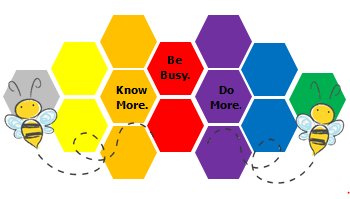Science
What makes a good scientist?
- A good scientist is curious about the world around them.
- A good scientist predicts, investigates and records ideas.
- A good scientist is observant.
- A good scientist is resilient and tries their best to solve problems.
- A good scientist is open minded.
- A good scientist is analytical.
Vision
At Devonshire Primary Academy, Science is a subject that we are incredibly passionate about and this is reflected in the fact that we are currently in the process of attaining the Science Quality Mark!
Children have lots of questions about the world around us and we aim to provide them with the necessary core scientific knowledge and investigative skills to answer their questions. Our Science Curriculum provides a rich variety of topics that cover all the core scientific disciplines and contexts that the children can relate to their everyday lives. Our Science Curriculum is planned sequentially to ensure that each new piece of knowledge builds on the last, thereby building upon what children already know. Continuous provision has also been planned to ensure that the children receive essential information little, often and at the optimum time.
Our Science Curriculum develops essential characteristics of scientists:
- The ability to think independently and raise questions about working scientifically and the knowledge and skills that it brings.
- Confidence and competence in the full range of practical skills, taking the initiative in, for example, planning and carrying out scientific investigations.
- Excellent scientific knowledge and understanding which is demonstrated in written and verbal explanations, solving challenging problems and reporting scientific findings.
- High levels of originality, imagination or innovation in the application of skills.
- The ability to undertake practical work in a variety of contexts, including fieldwork.
- A passion for science and its application in past, present and future technologies.
How do we enhance Science Provision at Devonshire Primary Academy?
- STEM Week
- Educational Visits
- Links with local High Schools
- University Partnerships
How is Science is taught at Devonshire Primary Academy?
The Science curriculum is designed to help children form a Science schema within their long-term memories. Schema theory states that all knowledge is organised into units. A schema is, therefore, a conceptual system for understanding knowledge.
Our Science schema is a way of organising Science semantic and procedural knowledge in a meaningful way; it is an appreciation of how facts are connected and the ways in which they are connected. It is distinct from information, which is just isolated facts that have no organisational basis or links.
Threshold concepts help form the basis of the schema. These ‘big ideas’ are key concepts that underpin the subject. There are four Threshold Concepts in Science:
- Working Scientifically (planning and carrying out scientific enquires);
- Chemistry (becoming familiar with a range of materials, their properties, uses and how they may be altered or changed);
- Biology (understanding living organisms structure, adaptations and environment); and
- Physics (understanding how energy, forces and matter in space and time relate to each other).
Science at Home
There are lots of ways in which you can support your child with their Science learning at home.
- Spend time outside making and talking about scientific observations.
- Ask your child about their Science learning – they will have lots to tell you!
- Engage in scientific enquiries such as planting seeds; making observations over time of the changing seasons, the moon or growth of a family member/pet; making shadows; identifying reversible and irreversible changes in the kitchen whilst cooking etc.
Useful Websites






